[Big read] North Korea and Russia's growing military cooperation is unsettling
As North Korea continues with its efforts in developing its military weapons - the latest being the launch of a reconnaissance satellite - attention is on Russia's involvement and assistance, much to the protest of some countries. What are the implications of such cooperation and close relations? Lianhe Zaobao executive translator Mak Cor Sin speaks with academics and experts to find out more.
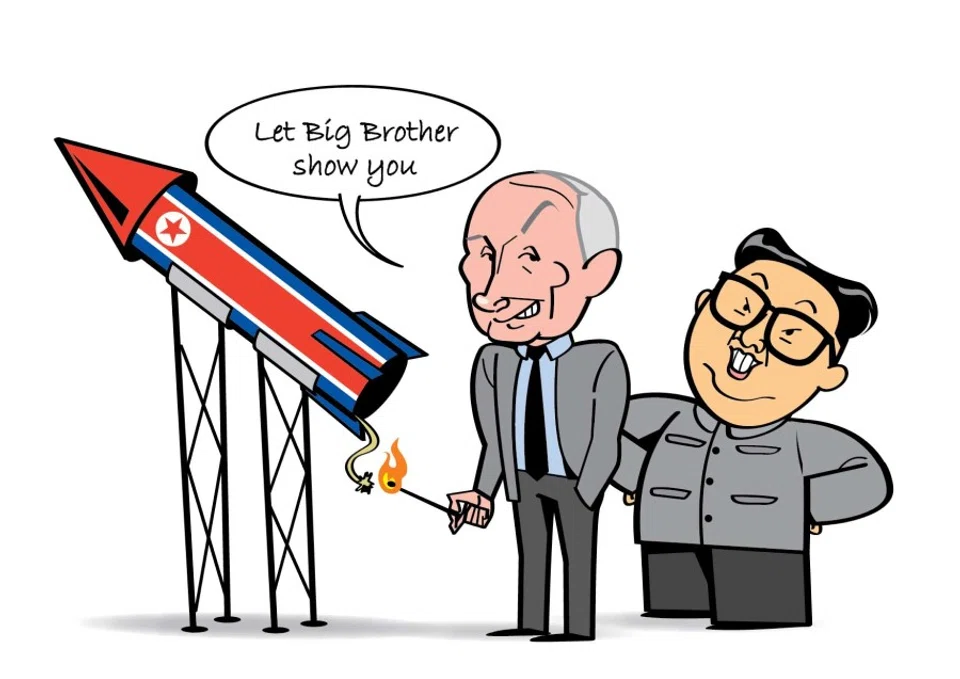
North Korea has claimed that on 21 November it successfully launched into orbit the military reconnaissance satellite Malligyong-1, which would formally begin its reconnaissance mission on 1 December. The statement triggered strong condemnation from the US, South Korea and Japan, which accused North Korea of openly violating United Nations sanctions and destabilising the region.
According to the North Korean Central News Agency, on 22 November North Korean leader Kim Jong-un inspected photos of the satellite taken from the airspace over Guam, including the Andersen Air Force Base, Apra Harbor and other major US military bases.
Kim emphasised that North Korea should launch more reconnaissance satellites into orbit to provide the country's armed forces with sufficient valuable real-time intelligence.
Experts warned that the successful launch of a North Korean military reconnaissance satellite into orbit signifies a significant leap in the intelligence-gathering capabilities of the Kim Jong-un regime, especially in monitoring South Korea and the US territory of Guam. This would help North Korea in obtaining crucial intelligence data in the event of a military conflict.
In the past, only the US, South Korea and Japan had the capabilities of using satellite reconnaissance to monitor North Korea's military deployments and movements and share intelligence. In the future, North Korea will also be able to monitor military movements by the US and South Korea, as well as defence situations in Japan.
Guidance from Russia
Earlier, North Korea's attempts to launch military reconnaissance satellites in May and August of this year ended in failure. The South Korean National Intelligence Service said on 23 November that Russia very likely assisted North Korea in this successful satellite launch. It is believed that Russia helped analyse data provided by North Korea on the two failed satellite launches, and offered solutions for improvements.
South Korea believes that after the Putin-Kim summit, Russia sent engineers to Pyongyang. - Professor Nam Sung-wook, Graduate School of Public Administration, Korea University
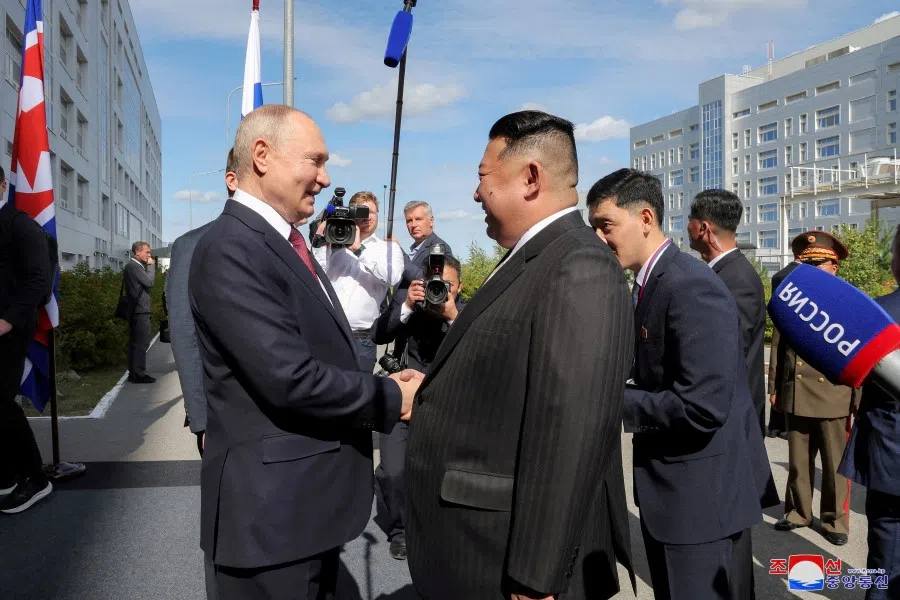
South Korean academics believe that the guidance from Russian technical experts increased the success rate of North Korea's satellite launches. Professor Nam Sung-wook of the Graduate School of Public Administration at Korea University told Lianhe Zaobao that this is indeed a result of the summit between Kim Jong-un and Russian President Vladimir Putin.
In September of this year, Kim made his first foreign visit after the pandemic, meeting with Putin at the Vostochny Cosmodrome, a symbol of Russia's independent space exploration capability, and visiting a military factory in Russia's Far East.
Nam believes that North Korea and Russia have exchanged aerospace technology and ammunition. He noted that South Korea believes that after the Putin-Kim summit, Russia sent engineers to Pyongyang. However, it is unclear whether Russia delivered rocket engines to North Korea.
Nam added that North Korea's expanded military technology cooperation with Russia has enhanced its spy satellite technology, and it is expected that North Korea will engage in more daring military provocations, posing a serious threat to the national security of South Korea.
He cautioned that with Russia's assistance, North Korea's nuclear missile threat is escalating, and missile attacks launched by North Korea on the southern part of the Korean peninsula in the future cannot be ruled out. Nam said, "Seoul has no nuclear weapons... a population of nearly ten million, and is only 40 kilometres from the demilitarised zone between North and South Korea. If North Korea launches missile attacks, the consequences would be unimaginable."
"China will stay on as Pyongyang's primary economic benefactor and diplomatic protector, while Russia could play the part of the North's main military partner..." - Artyom Lukin, Deputy Director for Research, School of Regional and International Studies, Far Eastern Federal University, Russia
Artyom Lukin, the deputy director for research in the School of Regional and International Studies at the Far Eastern Federal University in Vladivostok, Russia, said that while it is uncertain whether Russia has provided any assistance to North Korea's satellite programme, it cannot be ruled out.
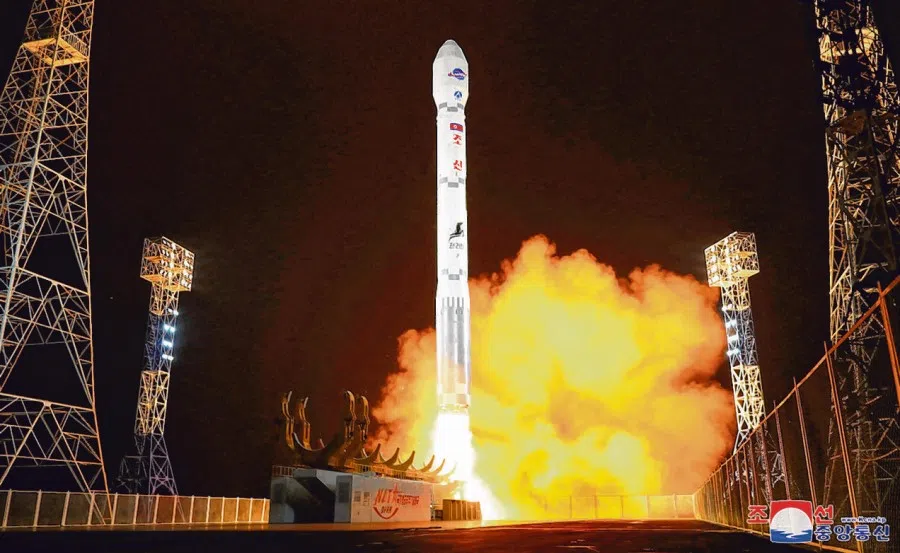
Lukin told Lianhe Zaobao, "It is telling that the DPRK [Democratic People's Republic of Korea] had two unsuccessful launches earlier this year. Success came only with the third attempt, after Putin pledged to help the DPRK with its space programme a few months earlier."
However, many experts are also sceptical that Moscow could provide enough assistance to Pyongyang within about two months, to change the outcome of the satellite launch.
Professor Chang Young-keun of the Korea Aerospace University said that it would have been impossible for North Korea to rebuild a satellite with Russian technology or hardware assistance within that time. He added, "But Russia could have offered some analysis on previous failures and telemetry data."
Frequent North Korea-Russia interactions drawing attention
Recently, North Korea and Russia have grown closer, with more frequent interactions between the two countries. This has attracted widespread attention from the international community, with speculation that North Korea and Russia may be cooperating on military reconnaissance satellites, weapons and other matters.
During the Putin-Kim summit, Kim pledged that North Korea would treat its relations with Russia as its "top priority" and the first priority of its foreign policy, committing to stand together with Russia in the "fight against imperialism". Meanwhile, Putin vowed to help North Korea with space technology.
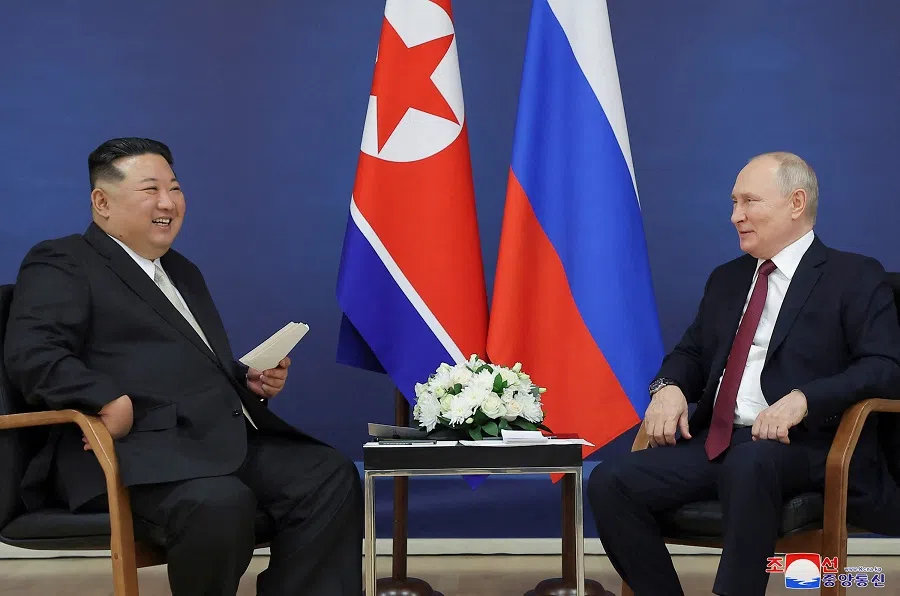
In a commentary published on 27 September 2022 in 38 North, a Washington-based think tank that monitors North Korean developments, Lukin pointed out that the Russia-Ukraine war has "ushered in a new geopolitical reality", whereby the Kremlin and North Korea may become increasingly close, perhaps even to the point of "resurrecting the quasi-alliance relationship that had existed during the Cold War".
Lukin also predicted that China's and Russia's role in regard to North Korea will undergo some subtle changes in the future, in his commentary published on 26 September in 38 North. He analysed, "China will stay on as Pyongyang's primary economic benefactor and diplomatic protector, while Russia could play the part of the North's main military partner. Moscow will be happy with such a role if only because it already has little to lose with Washington, Seoul and Tokyo."
Increasing influence
The more than three years of border closures and the failed negotiations with the US in 2019 have made North Korea more isolated than ever.
Lukin pointed out that although Kim met with former US President Donald Trump in Hanoi for the second US-North Korea summit in February 2019, they did not reach any agreement, and denuclearisation talks eventually entered a stalemate.
Lukin believes that the Putin-Kim meeting held in September this year will help North Korea gain the upper hand in US-North Korea negotiations, expand North Korea's diplomatic space and help break US dominion on the Korean peninsula. He said, "Kim does not want to look too dependent on Washington, Beijing and Seoul."
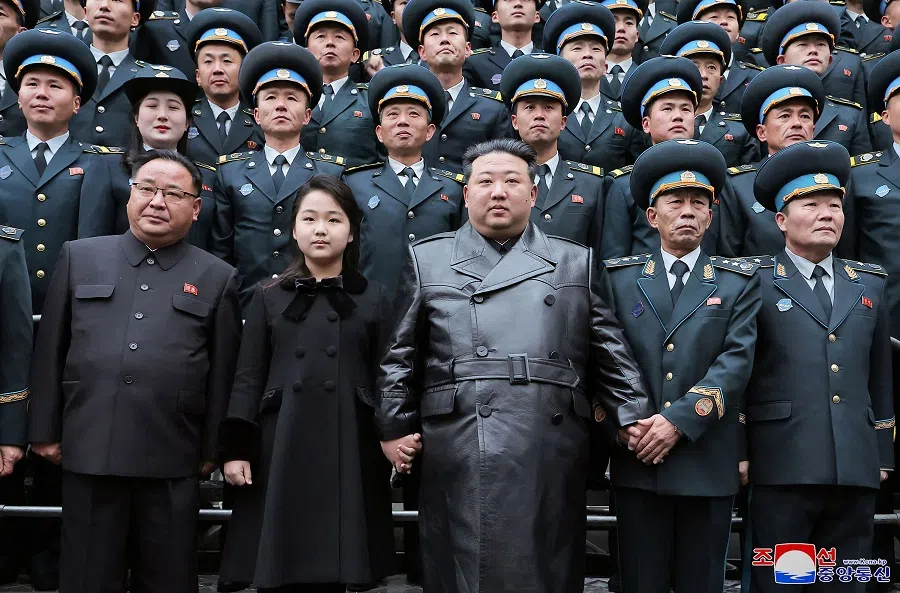
Meanwhile, Korea University's Nam believes that amid their isolation from the Western world, North Korea and Russia have naturally "come together". Evidently, the Kim administration hopes to increase its influence by becoming more closely aligned with Russia. This also implies that North Korea has abandoned its 30-year quest for US ties and entered a new era of developing substantive relations with Russia. He said, "If it gains the support of a major power [Russia], it will have more bargaining chips for negotiations with the US."
Also, North Korea could gain Russia's assistance with satellite technology, and Russia could also provide North Korea with free provisions of food or energy resources, thereby consolidating Kim's regime.
Why Russia and not China?
Analysts pointed out that although 90% of North Korea's foreign economic and trade assistance comes from China, North Korea and Russia are developing military and technological links.
Also, Beijing has always opposed North Korea's seventh nuclear test, in stark contrast with a potential arms deal that Moscow is negotiating with North Korea. Some analysts believe that North Korea could be seeking to reduce its reliance on China by strengthening its relations with Russia.
"North Korea hopes to receive natural gas and grains from Russia and to gain Russian support in satellite technology and nuclear submarine technology. But it cannot receive such advanced technologies from China." - Nam
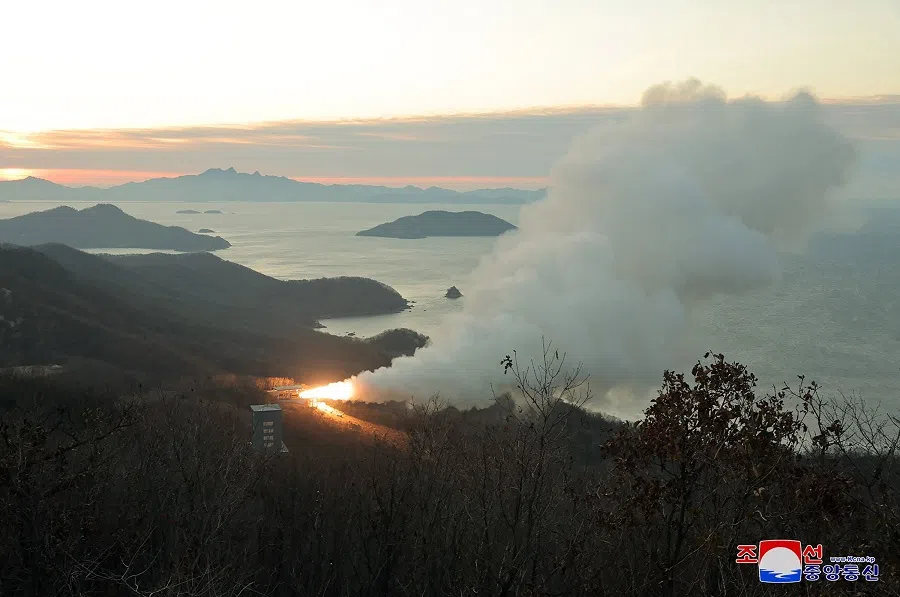
Nam said that while China has always had considerable influence over North Korea, Pyongyang does not want to solely rely on Beijing. He noted, "North Korea hopes to receive natural gas and grains from Russia and to gain Russian support in satellite technology and nuclear submarine technology. But it cannot receive such advanced technologies from China."
Beijing also gave a muted response to the Putin-Kim meeting. Chinese foreign ministry spokesperson Mao Ning said back then that the North Korean leader's visit to Russia is something between their two countries and concerns North Korea-Russia relations. She added that China-North Korea relations are making sound progress.
A commentary published in South Korea's Dong-a Ilbo pointed out that the world is just as focused on China's attitude as it is on the meeting between the North Korean and Russian leaders. If China assists or silently consents to the illegal arms deal between North Korea and Russia, Beijing's credibility and position will take a big hit.
What can Russia gain?
The Putin-Kim meeting was clearly more beneficial for North Korea than Russia. On a strategic level, satellite technology cooperation between Russia and North Korea most likely led to a technological breakthrough for Pyongyang. In the long run, Russia's technological support for North Korea's satellite will help improve Pyongyang's intercontinental ballistic missile programme.
South Korea's support of Ukraine in the war is another push factor that led to Moscow to strengthen its relationship with Pyongyang. - Professor Gerard Toal, School of Public and International Affairs, Virginia Tech, US
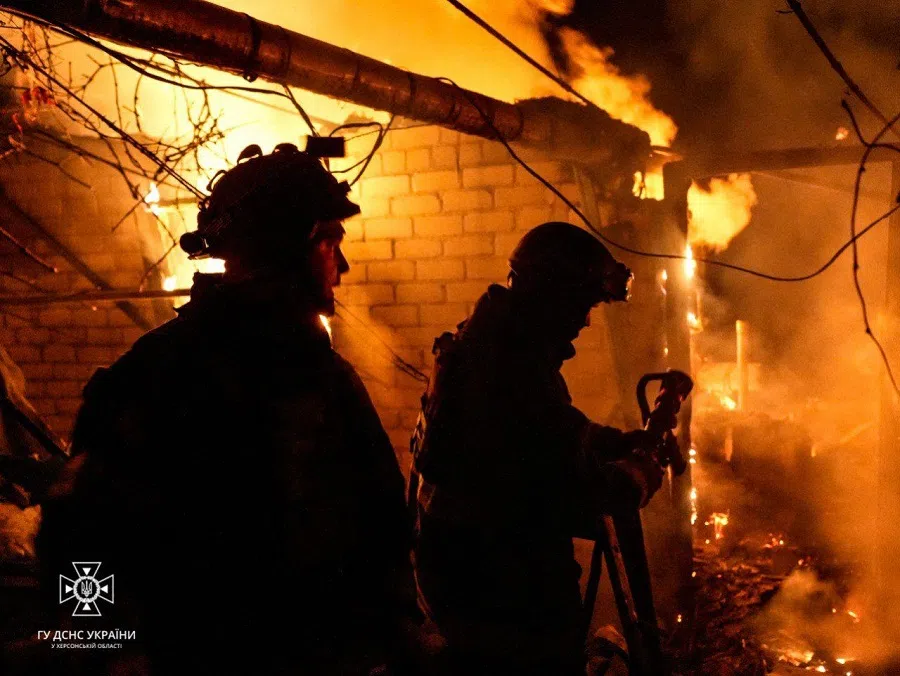
However, why is the Russian military, which some would consider the second strongest in the world, reduced to the point of asking North Korea for ammunition for its war against Ukraine?
Gerard Toal, a professor at the School of Public and International Affairs at Virginia Tech in the US, analysed that the protracted Russia-Ukraine war has taken a toll on the Russian military, far beyond Putin's initial estimations.
Moreover, China has adopted a neutral stance in the conflict between Russia and Ukraine, and has not given direct military aid to Russia. With the war dragging on and looking to become a drawn out fight, the pressure is mounting on Russia. Moscow desperately needs weapons, specifically ammunition and artillery shells, and Pyongyang has plenty of both.
Toal told Lianhe Zaobao, "For Putin, the war with Ukraine has indeed reached a difficult stage. Russia's weapons have been greatly depleted because of the war, and there is a need for resupply in order to continue fighting. The large number of Soviet-style weapons in Kim Jong-un's armoury has become an option."
Toal opined that South Korea's support of Ukraine in the war is another push factor that led to Moscow to strengthen its relationship with Pyongyang. South Korean President Yoon Suk-yeol's surprise visit to Kyiv in July is a show of clear support for Ukraine, standing in stark opposition to Russia.
When Kim met with Putin, North Korea made it clear that it would provide Moscow with "full and unconditional support" in its "sacred fight" against Ukraine...
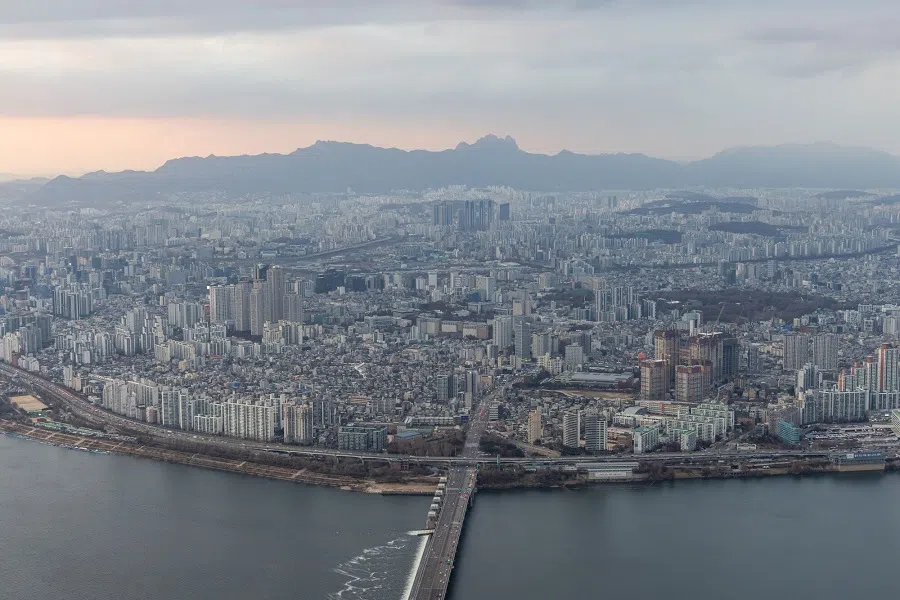
Even as the Yoon administration firmly claimed that it would only provide Ukraine with non-lethal military aid, such as bulletproof vests, helmets and medical supplies, the Wall Street Journal quoted an insider source claiming that upon Washington's request last year for South Korea to provide aid to Ukraine, Seoul and Washington reached a confidential agreement to have South Korean artillery shells shipped to Ukraine via the US.
Toal stated, "This clearly infuriated Russia. Russia and North Korea's cooperation on satellite technology can be said to be Moscow's way of taking revenge against South Korea for supporting Ukraine."
When Kim met with Putin, North Korea made it clear that it would provide Moscow with "full and unconditional support" in its "sacred fight" against Ukraine. North Korea is also one of the few countries to recognise the independence of Russia-controlled statelets of Donetsk and Luhansk.
North Korea added that if there was an outbreak of "an irreconcilable conflict" between the North and the South, the latter would be held responsible. Pyongyang's declaration caused tensions to escalate in the Korean peninsula.
Tensions rising in the Korean peninsula
Undoubtedly, South Korea would be the most concerned party when it comes to North Korea and Russia getting closer. As a nuclear power, Russia choosing North Korea as its political and military ally would certainly bring about a lot of uncertainties for South Korea.
Experts warn that the North Korea-Russia alliance could escalate tensions around the Korean peninsula, and allow North Korea to push for its nuclear weapons plans, in turn forcing both South Korea and Japan to strengthen their military cooperation with the US.

Upon news of North Korea's successful launch of its spy satellite, the South Korean government announced that it would suspend parts of its 2018 military agreement with North Korea and resume reconnaissance and surveillance activities along the military demarcation line.
The following day, North Korea threatened to tear up the agreement entirely, and retaliated by deploying more powerful troops and the latest weaponry at the border. North Korea added that if there was an outbreak of "an irreconcilable conflict" between the North and the South, the latter would be held responsible. Pyongyang's declaration caused tensions to escalate in the Korean peninsula.
South Korea's National Intelligence Service stated that although a seventh nuclear test in North Korea has not yet been detected, it could happen at any point upon Kim Jong-un's command.
US Secretary of State Antony Blinken warned on 9 November that North Korea and Russia's military cooperation are "growing and dangerous", describing North Korea as "the greatest source of instability." The Kremlin responded that Russia has the right to choose to have relations with any country, without interference from any third party.
Although both North Korea and Russia have denied any agreement over a transfer of arms, both the US and South Korean militaries and intelligence departments claim that since early August, Russia has received more than 1 million artillery shells and other military equipment from North Korea.
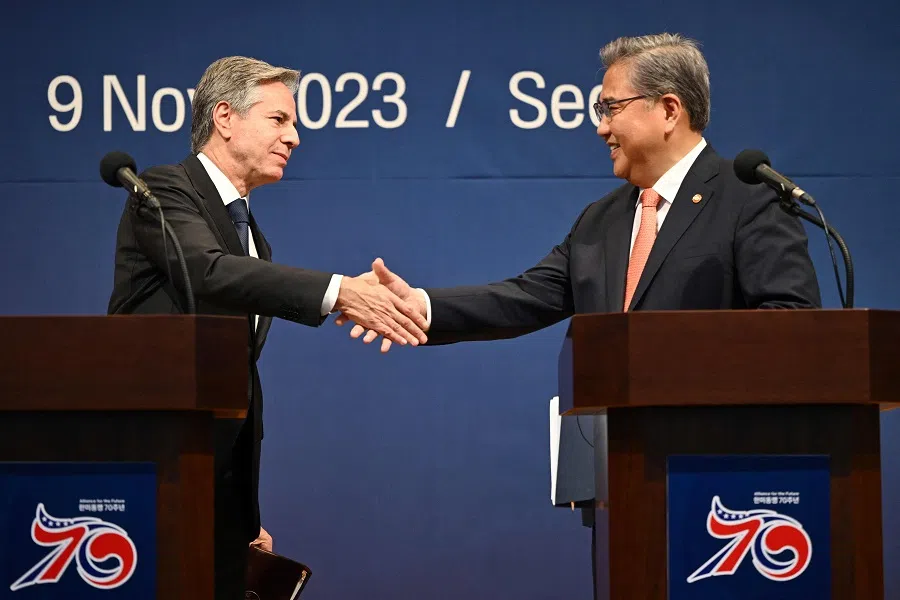
Blinken stressed, "We have real concerns about any support for North Korea's ballistic missile programs, for its nuclear technology, for its space launch capacity." He added that the US is working to "identify, to expose and as necessary to counter these efforts".
Blinken also called on China to wield its influence to rein in North Korea's weapons programmes, including "irresponsible" missile launches.
On North Korea's launch of a spy satellite, China's Foreign Ministry stated that it hopes that all parties will remain calm and exercise restraint, and stick to the direction of seeking political settlement.
Some experts believe that if North Korea-Russia ties deepen, Beijing's influence over the two countries would shrink. With military technology support from Russia, the dictator Kim Jong-un could then become even bolder and more unpredictable, and this would certainly make Beijing more concerned.
This article was first published in Lianhe Zaobao as "俄助平壤发射军事卫星 俄朝愈发靠拢牵动各方神经".





